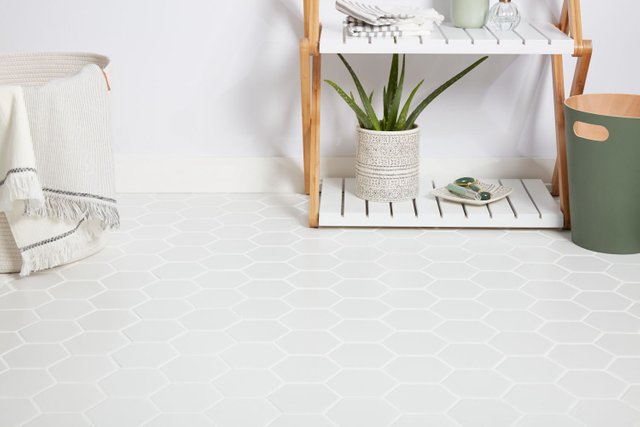Since the no.1 tiles producers in India, in Orientbell we frequently receive tile-related inquiries from our beloved clients. Thus, we believed, we will deal with a few of the typical questions in our weekly site. In the current blog, we'll answer all of your questions about ceramic tiles and their heat resistance.

Thus, can ceramic tiles withstand heat?
Yes, ceramic tiles are heat-resistant but that does not mean they're heat proof. Offered in a huge selection of colors, designs and finishes, ceramic tiles are a fantastic way to bring a dash of color and sophistication to your insides. Apart from looking pretty, these tiles are absolutely practical also. They could withstand heat, which makes them a fantastic selection for kitchen countertops and other heat-prone regions of your property. That said, these tiles may get ruined if you do not handle them the ideal way. Putting a hot kettle off the cooker can harm it.
Which are ceramic tiles?
Ceramic tiles are created by heating white or red clay in warm kilns. They're then glazed to attain the desired color and design. They seem like ceramic tiles however thicker and may be used on countertops, walls and floors.
Ceramic tiles are best for home use since they may defy the footfall in homes but can't resist the high traffic in commercial areas.
Colours and Finishes: The largest benefit of ceramic tiles is they can be found in endless variety of colors and designs. Aside from the color, ceramic tiles also have multiple endings to choose from:
Shiny, shiny finish
Subdued matte finish
Subdued matte end
For the very best assortment of ceramic tiles in India, reach out to Orientbell the very best ceramic tiles producers in India. Get in contact with us to get a complimentary copy of our newest ceramic and ceramic tiles catalog.
Ceramic Tiles & Heat FAQs
1. UP TO WHICH TEMPERATURE CAN CERAMIC TILE WITHSTAND?
Ceramic tiles can withstand temperatures in the range of 600◦C to 1600◦C.
2. WHICH TILES CAN WITHSTAND HIGH TEMPERATURES?
When subjected to elevated temperatures, certain tiles such as linoleum melt readily. On the flip side, both ceramic and ceramic tiles can withstand high temperatures and are best for kitchens.
3. DO CERAMIC TILES CONDUCT HEAT?
Yes, both the ceramic and ceramic are great conductors of heat. They could make your house feel comfortable during winters. One more advantage of ceramic and ceramic flooring is they don't contract or expand with all the fluctuations in temperature. Therefore they don't crack or chip easily, unlike other synthetic tiles.
4. AT WHAT TEMPERATURE DOES CERAMIC TILE CRACK?
Ceramic tiles can withstand very high temperatures around 1600◦C. Thus, you do not need to worry about those tiles breaking into the lower temperatures on your cooker.
5. IF CERAMIC TILES CAN WITHSTAND HIGH TEMPERATURES WHY DOES IT CRACK?
The problem with ceramic tiles is not the temperatures inside your kitchen. When the temperature climbs gradually, then the tile may withstand high temperatures exceeding 1000◦C. But it will crack if there's a thermal shock -- abrupt changes from warm to cold. By way of instance, placing a hot pan carries the tile fast for cold to warm, which makes it prone to breaking and chipping.
6. IS CERAMIC TILE FIRE-PROOF?
It's fire-resistant, meaning it will not catch fire readily. Consequently, it's perfect for inside, particularly kitchens, since they don't catch fire easily.
7. WHICH IS MORE HEAT-RESISTANT: PORCELAIN OR CERAMIC?
The clays used in the production of ceramic tiles tend to be thicker compared to the clay used in ceramic tiles. This makes ceramic more porous, so hence they don't attract moisture readily. Because of this, porcelain is much more heat-resistant compared to ceramic. That said, ceramic may evenly resist the high temperatures in national kitchens with no difficulties.
8. IS IT Feasible TO DIFFERENTIATE BETWEEN CERAMIC AND PORCELAIN TILES?
Yes. To distinguish between ceramic and ceramic tiles together with the bare eye, you have to check out the sides. When the sides are tan, red or white, then it is a sign that the tile is ceramic. You might even analyze the finish. When it's super easy, then it is largely ceramic.
9. HOW CAN I PREVENT CRACKS IN THE CERAMIC TILES IN MY KITCHEN?
Ceramic tiles can certainly withstand heat. However, they're more likely to crack if the temperature changes abruptly. Here Are a Few Tips to prevent cracks on your porcelain countertops:
10. WILL CERAMIC TILES UNDERGO COLOUR CHANGES DUE TO HEAT?
While ceramic tiles don't reveal some discolouration due to heat, sudden temperature changes from warm to cold and vice versa may lead to discolouration. To prevent this, consider using a grout sealer. Seal grout in your brand new ceramic kitchen counter tops. Allow it to rest for a week. Sealing helps to decrease the damages brought on by sudden temperature fluctuations. If you observe any chipping about the tile, then you'll need to regrout it. Regrouting helps protect your porcelain tiles, keeping it free of discolouration and chipping.
We hope this answers all of your queries on ceramic tiles and heat-resistance. As the top tiles producers in India, we've got a massive group of ceramic and ceramic tiles in an assortment of colors and designs. Get in contact with us to obtain the ideal tiles to your walls, countertops and floors.